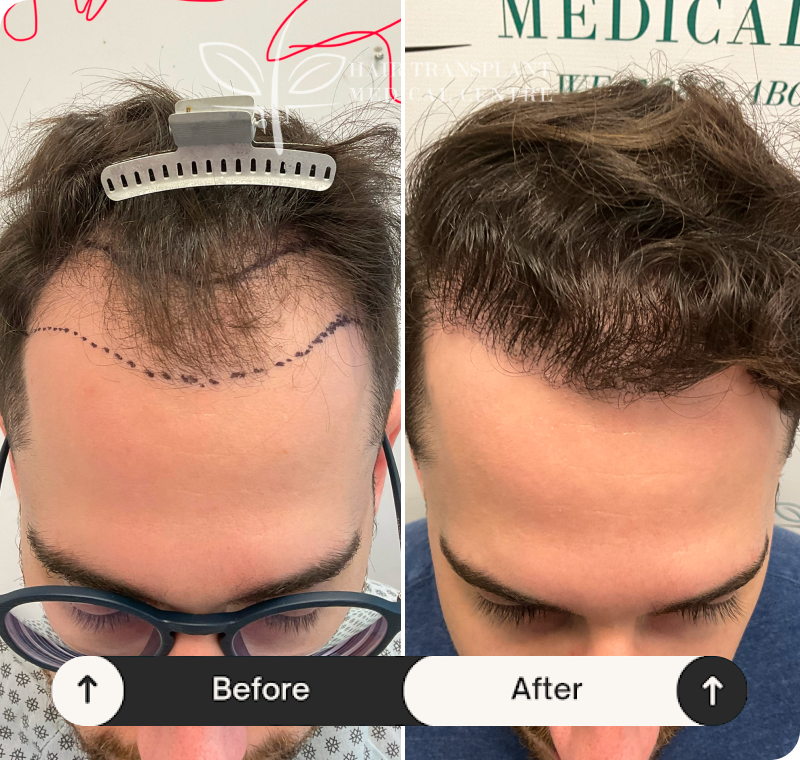All people experience ordinary stress which creates damage to physical health alongside mental wellbeing. Physical health problems stemming from stress often show themselves differently than emotional or psychological symptoms that people typically connect with stress. Stress produces one of the most dangerous physical consequences which involves negatively affecting the condition of your hair. The condition of stress-related hair loss appears in people at any age point but seriously affects the emotional state of men particularly. People require knowledge about how stress causes hair loss together with stress management techniques to preserve mental and physical wellness.
How Stress Affects Hair Growth
Analyzing body stress activates hormonal responses that release cortisol as the main stress hormone. High hormone levels disrupt the hair growth cycle which causes the development of telogen effluvium. The hair follicle transition to resting phase occurs prematurely in telogen effluvium which affects a higher than typical number of follicles. The hair follicles enter a premature resting state because of which hair shedding becomes more prominent leading to visible thinning. The gradual nature of stress-related hair loss affects numerous people enough to create emotional distress.
Any stress that continues for extended periods may result in impairing hair growth through the development of alopecia areata. Hair follicles become targets for impostor immune attacks in this condition which produces areas of hair loss. Alopecia areata develops when stress serves as a key factor which triggers the condition even though scientists have not found the full explanation for its origin. The combination of stress with current hair loss conditions requires individuals to implement stress management methods because stress worsens their existing hair conditions.
Managing Stress to Prevent Hair Loss
The best practice to stop stress from causing hair loss involves solving the original sources of stress. People can attain this outcome through different methods that lower tension and create relaxation. Regular physical activity stands as one of the most established methods which people use to handle stress effectively. The practice of exercise delivers dual benefits for wellness by controlling body hormones and particularly cortisol to decrease stress reactions in the body. Get stress reduction and maintain a balanced lifestyle through walking or running alongside yoga activities.
In Addition to physical exercise, stress management requires adopting relaxation techniques for effective stress control. Meditation along with deep breathing techniques and mindfulness practices lead to mental tranquility which decreases anxiety levels. The methods help decrease stress hormone levels which minimizes their adverse effects throughout your body and specifically on hair health. The body needs proper recovery time to perform at its best just like it requires enough rest time. Quality sleep is vital for stress reduction and better health because it enables bodily processes of repairing cells while also regenerating cells sustaining hair health.
Maintaining a Healthy Lifestyle
A healthy lifestyle adoption supports both hair growth and hair retention because it works as an essential preventive measure against hair loss. The proper nutrition stands crucial for sustaining healthy hair because your body needs particular elements which contribute to hair growth strength. Proper nutrition which includes necessary vitamins and minerals alongside proteins produces substantial improvements to hair condition. The combination of vitamin D-rich foods with zinc and biotin supports hair growth while proteins give hair follicles needed elements for growth and strength.
Fitness of both scalp and hair depends heavily on both a healthy diet and sufficient hydration intake. Dry and brittle hair appears when the body lacks moisture since dehydration poses a risk of hair breakage. Drinking adequate levels of water while using hydrating hair products enables scalp and hair tissues to retain moisture so they stay strong and healthy. Refraining from excessive use of harsh hair treatments and styling products helps preserve the health of hair along with the scalp to maintain their strength.
When to Seek Professional Help
Both stress control and a healthy lifestyle cutting down stress-related hair loss risk but individuals with advanced situations need professional medical attention. When hair loss becomes more severe than expected after attempting stress management people need to schedule evaluations with healthcare providers and dermatologists. Medical treatment may become essential to handle the core reason behind hair loss.
Patients who deal with permanent hair loss or severe hair thinning should consider hair transplant procedures as a possible solution. Hair transplant Toronto alongside other locations moves healthy follicles between different parts of the scalp to achieve hair regrowth. Another hair transplant is never the perfect choice for every person but it delivers positive results for people whose hair loss happened because of stressful events or different causes. Requesting guidance from experts enables individuals to choose the most suitable approaches for controlling their hair loss conditions.
Conclusion
Many people face the critical problem of shedding hair through stress-related causes. The understanding of how stress impacts hair health requires us to develop active plans for controlling stress through healthy methods. Individuals who combine physical exercise with stress-reduction practices and wholesome life habits will significantly minimize stress impacts on their hair health. Persistent hair loss needs professional medical attention, and hair transplants might become necessary to treat the condition effectively. It is essential to deal with stress-related hair loss because this affects both hair health and general wellness.

